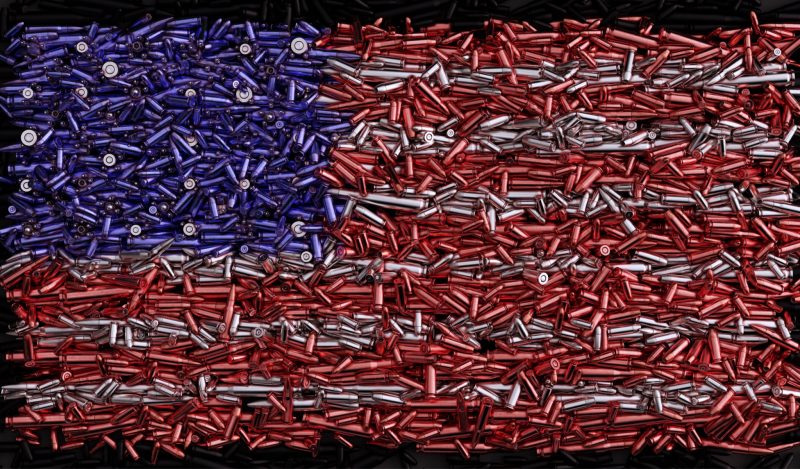The Supreme Court handed down a victory for political freedom last week in National Rifle Association v. Vullo that may lay the groundwork for lawsuits featuring dissidents against the Covid regime, including Berenson v. Biden and Murthy v. Missouri.
In Vullo, the Court considered whether the New York Superintendent of the Department of Financial Services violated the NRA’s First Amendment rights when she launched a campaign to coerce private actors “to punish or suppress the NRA’s gun-promotion activities.” MariaVullo and New York Governor Andrew Cuomo met with executives at insurance companies doing business with the NRA to threaten the companies with adverse regulatory proceedings unless they ceased their relationships with the NRA.
In a unanimous opinion, Justice Sotomayor ruled that this campaign, if proven true at trial, was illegal. “Vullo was free to criticize the NRA and pursue the conceded violations of New York insurance law,” the Court held. “She could not wield her power, however, to threaten enforcement actions against DFS-regulated entities in order to punish or suppress the NRA’s gun-promotion advocacy.”
The case offers direct parallels to the censorship of Covid-related information. The Biden White House repeatedly worked through third parties – including Meta, Twitter, and Google – to censor disfavored information.
In Murthy v. Missouri, four federal judges have found that the Biden administration, the Department of Homeland Security, the FBI, and the CIA violated the First Amendment in its ongoing collaboration with Big Tech to censor speech from the plaintiffs, who include doctors, news outlets, and states’ attorneys general. The Supreme Court heard oral arguments on the case in March, and an opinion is expected in the coming weeks.
Justice Sotomayor offered unequivocal support for the crux of the plaintiffs’ argument in Murthy, writing, “Government officials cannot attempt to coerce private parties in order to punish or suppress views that the government disfavors.”
But the case may offer an even better precedent for journalist Alex Berenson, who has sued the Biden administration, Pfizer CEO Albert Bourla, and White House officials for their role in prompting Twitter to ban him from the platform in August 2021. In Berenson v. Biden, the Defendants’ motion to dismiss heavily relied on the lower court’s decision in NRA v. Vullo, which the Supreme Court just unanimously overturned.
Further, like the Vullo case, the Government directly targeted Berenson by holding clandestine meetings with Twitter officials that called for his ban from the platform.
The Court wrote, “Vullo purportedly adopted [a strategy] to target the NRA’s advocacy. Such a strategy allows government officials to expand their regulatory jurisdiction to suppress the speech of organizations that they have no direct control over.” Similarly, the Biden administration and the Intelligence Community sought to expand their power by managing Americans’ access to information through Twitter, Meta, Amazon, and others.
Applying Vullo to the Censorship Cases
The Court approvingly cited the Second Circuit’s four-pronged analysis in determining whether a government communication constituted a coercive threat in violation of the First Amendment. The Court analyzed “(1) word choice and tone; (2) the existence of regulatory authority; (3) whether the speech was perceived as a threat; and, perhaps most importantly, (4) whether the speech refers to adverse consequences.”
As Brownstone has documented, the censors’ “word choice and tone” clearly suggest a coercive threat. “Are you guys fucking serious?” White House Advisor Rob Flaherty asked Facebook after the company failed to censor critics of the Covid vaccine. “I want an answer on what happened here and I want it today.” He told Meta to “change the algorithm so that people were more likely to see NYT, WSJ…[rather than] polarizing people.”
Flaherty also worked to strong-arm Google into increasing its censorship operations. He told executives that his concerns were “shared at the highest (and I mean the highest) levels of the White House” and that there was “more work to be done.”
The White House was able to successfully coerce these platforms because of Section 230, the regulatory authority underlying all social media platforms in the United States. In July 2021, President Biden and his spokesmen launched a public pressure campaign to increase censorship while threatening to remove Section 230’s liability protection.
On July 15, 2021, White House Press Secretary Jen Psaki discussed social media “disinformation” related to Covid-19 at her press briefing. “Facebook needs to move more quickly to remove harmful, violative posts,” she told reporters.
President Biden, spoke with the press the following day. Discussing social media companies, he remarked, “They’re killing people.”
That week, White House Communications Director Kate Bedingfield appeared on MSNBC and said that social media “should be held accountable” and reiterated President Biden’s support for private actors to restrict the speech of journalists, advocates, and citizens.
Then, the White House announced that it was reviewing the protections of Section 230, which threatened to strip social media platforms of liability indemnifications and upend their entire business model.
Recent reports from the House Judiciary Committee reveal that speech was perceived as a threat. As the Biden administration ratcheted up its censorship efforts in Summer 2021, Big Tech officials feared retribution if they did not comply.
Facebook’s President of Global Affairs Nick Clegg wrote in July 2021 that “given the bigger fish we have to fry with the [Biden] administration,” such as Section 230, the company should think creatively about “how we can be responsive to [the Administration’s] concerns.” A Facebook official later wrote that new “content moderation policies” were “stemming from the continued criticism of our approach from the [Biden] administration.”
White House official Andy Slavitt led efforts to remove and suppress dissent from Amazon, and the company complied within a week. YouTube, owned by Google, similarly complied with the White House’s demands to reduce alleged misinformation.
For the fourth factor – the threat of adverse consequences – the Supreme Court cited its 1963 opinion in Bantam Books v. Sullivan, which found that Government communications “phrased virtually as orders” and containing “thinly veiled threats” exceeded the bounds of the First Amendment when used to censor constitutionally protected speech.
During oral arguments for Murthy v. Missouri, Justice Alito noted the correspondence between the Biden administration and Big Tech platforms. “I cannot imagine federal officials taking this approach to the print media,” he remarked. “It’s treating these platforms like subordinates.”
The Court’s closing paragraph in Vullo offers encouraging dicta for the targets of the Covid regime:
Where, as here, a government official makes coercive threats in a private meeting behind closed doors, the ‘ballot box’ is an especially poor check on that official’s authority. Ultimately, the critical takeaway is that the First Amendment prohibits government officials from wielding their power selectively to punish or suppress speech, directly or (as alleged here) through private intermediaries.
Berenson and the Murthy plaintiffs were victims of just this pattern: the Biden White House and the Intelligence Community held closed-door meetings with Big Tech officials, and they used their power to selectively suppress speech through private intermediaries.
Even Justice Jackson Defends Free Speech
In oral arguments for Murthy v. Missouri, Justice Jackson’s questioning suggested an antipathy toward free speech, but her concurring opinion in Vullo also lays the framework for both Berenson and the Murthy plaintiffs.
Justice Jackson suggested that the dispositive issue was whether the act was retaliatory in nature. She explained that under her analysis, “the NRA would have to plausibly allege that a retaliatory motive was a substantial or motivating factor in Vullo’s targeting of the regulated entities doing business with the NRA.” Vullo would have to rebut the allegation by showing that she would have “taken the same action even in the absence of the NRA’s protected conduct,” meaning its Second Amendment advocacy.
Berenson and the plaintiffs in Murthy were clearly the targets of retaliatory action for using their constitutional right to dissent from the Biden administration’s corona law.
After suing Twitter, Berenson accessed concrete evidence that government actors, including White House Covid Advisor Andy Slavitt, worked to censor criticism of Biden’s Covid policies. In a secret White House meeting in April 2021, Slavitt targeted Berenson’s tweets questioning the efficacy of Covid vaccines for removal. “The conspirators did not simply ask Twitter to remove a specific post Mr. Berenson made,” according to Berenson’s suit. “Rather they pushed Twitter to ban him entirely, an unconstitutional prior restraint on his speech.”’
Rob Flaherty was more direct in his censorship demands. “Please remove this account immediately,” he told Twitter about a Biden family parody account. The company compiled within an hour.
The oral arguments in the free-speech case did not increase hopes for a solid outcome. But long experience suggests that oral arguments can be misleading. The briefs and the case law are what are decisive. If the NRA case is any indication, free speech advocates might have a new basis for hope in the wisdom of the Supreme Court.
Join the conversation:


Published under a Creative Commons Attribution 4.0 International License
For reprints, please set the canonical link back to the original Brownstone Institute Article and Author.









